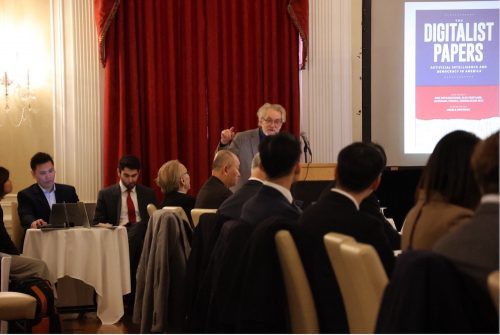Ireland may be the big adopter of AI in the EU, but a new report from Forrester suggests Europe is still slightly behind other regions.
Artificial intelligence is often slated as the technology that will transform the way we live and do business. But some have embraced it more than others.
Among EU countries, Ireland has the highest share of businesses using AI applications.
That’s according to European Commission data from 2020, which found that 23pc of enterprises in Ireland used any of these four AI applications: analysing big data internally using machine learning; analysing big data using natural language processing, generation or speech recognition; using a chatbot or virtual agent; or using service robots.
A recent report from research and advisory company Forrester said there’s a widespread perception that data privacy regulations, ethical concerns and reluctance to adopt cutting-edge tech have resulted in European companies being less advanced in terms of AI adoption that companies in other regions.
A 2020 survey it conducted with responses from data decision-makers in France, Germany and the UK confirmed that there is a lag, but the gap may not be as wide as many perceive it to be.
However, compared with people from other parts of the world, European respondents were less bullish overall about the benefits of AI, according to Forrester.
Large European companies including Airbus, Bosch, Rolls-Royce and Siemens have been innovating with AI, and Europe has been the birthplace of start-ups such as DeepMind and Featurespace.
However, many start-ups have been acquired by companies outside of the region (with Google snapping up UK-based DeepMind, for example) or have migrated their headquarters to the US.
The article was originally published here.
To support on positive AI applications to worldwide and European countries, Michael Dukakis Institute for Leadership and Innovation (MDI) and Boston Global Forum (BGF) has established Artificial Intelligence World Society Innovation Network (AIWS.net). In this effort, MDI and BGF invite participation and collaboration with governments, think tanks, universities, non-profits, firms, and other entities that share its commitment to the constructive and development of full-scale AI for world society. This initiative is to develop positive AI for helping people achieve well-being and happiness, relieve them of resource constraints and arbitrary/inflexible rules and processes, and solve important issues, such as SDGs.










